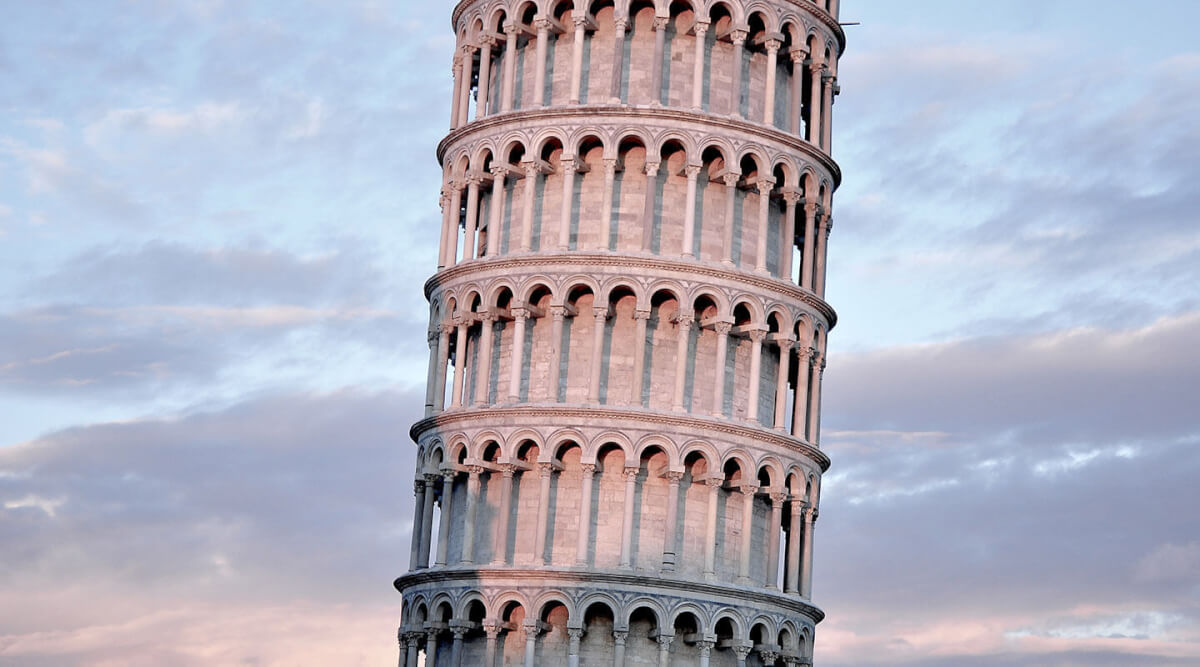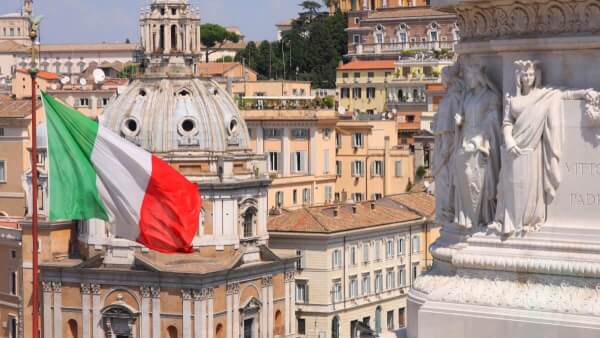Italy Golden Visa program: Full guide
Everything you need to know about getting a Golden Visa in Italy.

With its vibrant culture, romantic scenery and fantastic food, it's no surprise that Italy is one of the most popular destinations for Americans who want to make the leap to living in Europe. The capital Rome is the only choice for some, while others are drawn to the finance and fashion hub of Milan or the art mecca of Florence.
Italy is a member of the European Union, meaning if you happen to have a passport from any EU country, then you're free to live and work there without any additional visa. However, if you only have an American passport, you'll need to get a work visa to live and work in Italy.
If you’re staying for up to three months, you’ll need to provide the nearest police station with a declaration of presence (dichiarazione di presenza sul territorio nazionale). If your stay is going to be any longer, you’ll need a certificate which will grant you residency for five years. Apply for your attestato d’iscrizione anagrafica at the nearest town hall, or Comune-Ufficio Anagrafe. After five years, you can apply for permanent residency.
Italy generally hovers near the top of the index of most expensive EU countries to live in. Salaries are reasonable, but taxes are high. Naturally, life in the big cities will cost you more than it will in more rural areas, where it’s possible to live much more cheaply. Numbeo has a very handy breakdown of the cost of living in Italy.
Italy pretty much invented the bank – the Banca Monte dei Paschi di Siena dates back to the 15th century. But you’ll find the banking system in Italy modern and relatively easy to use. There are three types of bank: credit banks, co-operative banks and co-operative credit banks. The most common types of account are checking (assegno) and current (conto corrente). You’ll need to open your account in person, showing your passport, proof of address, residence card or evidence of employment and your tax identification number (codice fiscale). You can apply for this at an Italian embassy in the U.S., or at the Revenue Service – Agenzia delle Entrate - in Italy, by showing your passport. Once you’ve set up your Italian bank account, make sure to register with Transferwise so you can easily send money between your American and Italian accounts. You can save on those big bank fees and unfair exchange rates.
It’s advisable to find a job before making the move to Italy, as it’s pretty tough – though not impossible – to get work once you’re there. Italy’s unemployment rate is 12.4% as of April 2015, and it’s particularly high among young people. Large agencies like Manpower have an Italian presence, and Monster is there too. Temp work and short contracts will be easier to obtain than longer contracts. Teaching English is a good option. Make sure to network with other expats on Facebook and LinkedIn and through blogs – they’ll be a big help.
Renting accommodation in Italy is generally expensive, and will probably take up a large proportion of your income. It can be much better to buy – although the property market can be quite baffling. If you’re renting, try traditional channels – you’ll find properties directly advertised with signs in windows (affittasi or da affittare) and cards on public noticeboards. Expat networks will be helpful as well as good old word of mouth.
State education in Italy is considered to be excellent and is free for all, including the children of expats. The style of education is a little different, with more emphasis on oral tests than written ones. Pre-school is option, but primary school is compulsory from the age of six. There are a few private foreign and international schools which teach in English. You may find that local children are given preference for places at state schools.
The benefits of Italy’s national health service, the SSN (Servizio Sanitario Nazionale) is available to any Italian resident or citizen of the EU. Many expats will still prefer to opt for private health insurance, the cost of which will vary. Treatment standards are generally excellent, but the SSN, like the NHS, is under a lot of strain and many changes are expected to be made in the next few years.
Before moving abroad, take a look at our handy time-sensitive checklistto remind yourself of everything you need to do to get organised.
*Please see terms of use and product availability for your region or visit Wise fees and pricing for the most up to date pricing and fee information.
This publication is provided for general information purposes and does not constitute legal, tax or other professional advice from Wise Payments Limited or its subsidiaries and its affiliates, and it is not intended as a substitute for obtaining advice from a financial advisor or any other professional.
We make no representations, warranties or guarantees, whether expressed or implied, that the content in the publication is accurate, complete or up to date.

Everything you need to know about getting a Golden Visa in Italy.

Thinking about moving to Italy? Find out what you need to know about renting in Italy in this guide.

Get ready for la dolce vita with our guide on retiring in Italy.

Looking for jobs in Italy? Find all you need to know about Italian work visa requirements.

Here’s the lowdown on who can apply and how you go about getting dual citizenship with Italy.

Getting married in Italy is relatively straightforward. Like any wedding though, it requires advanced planning, as well as a basic understanding of the law....